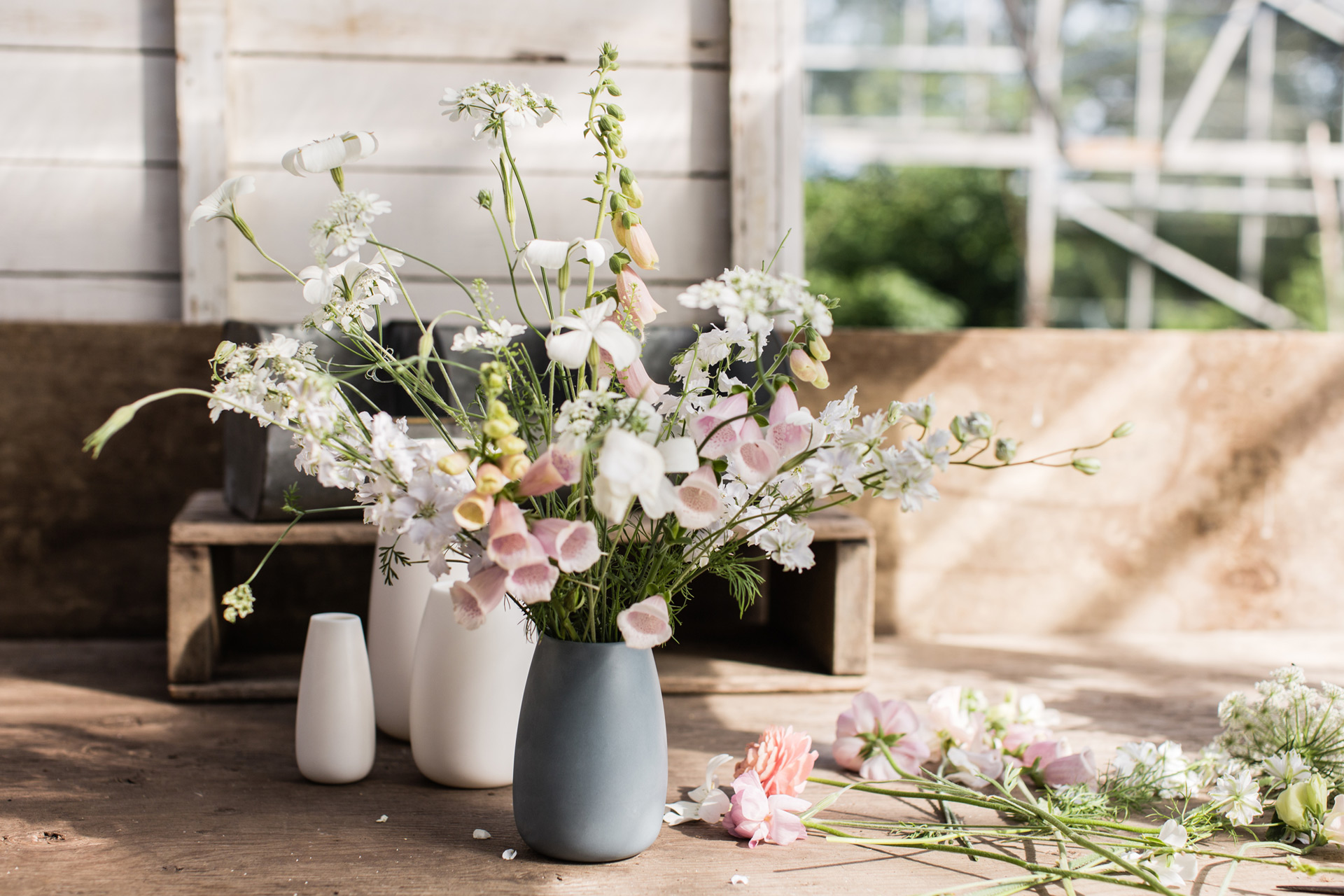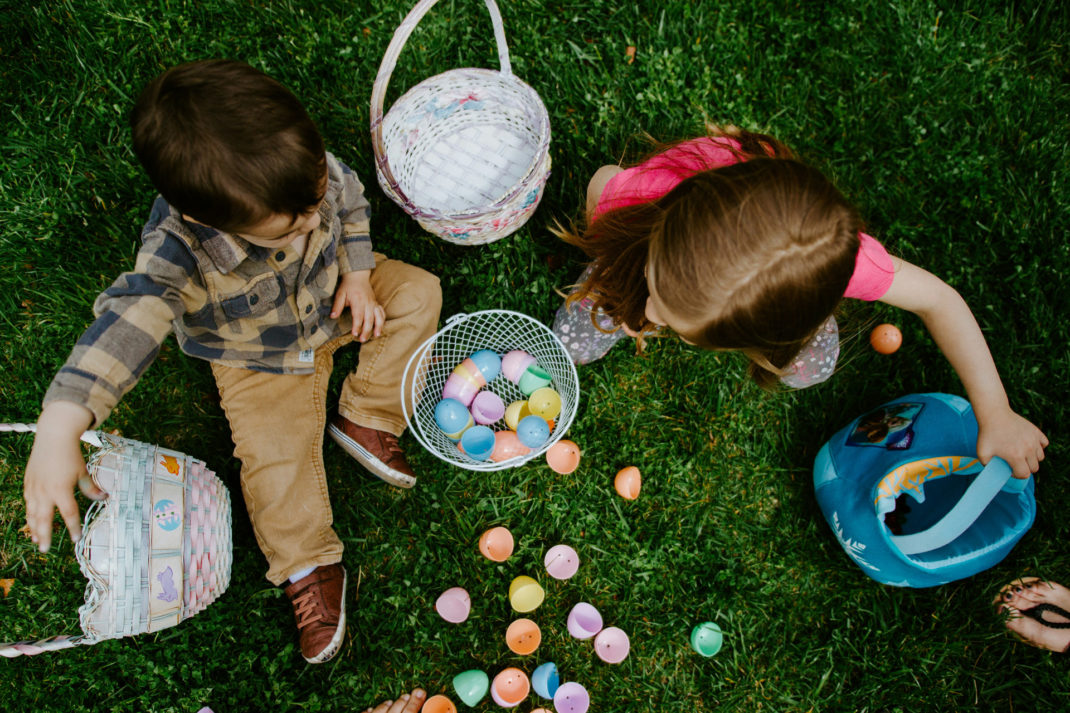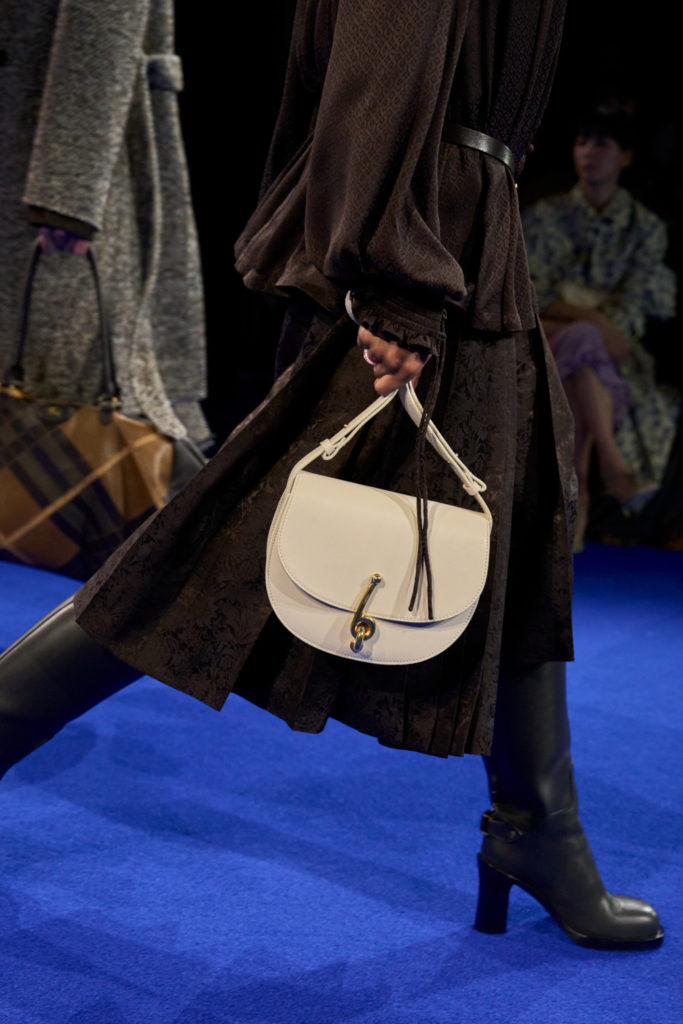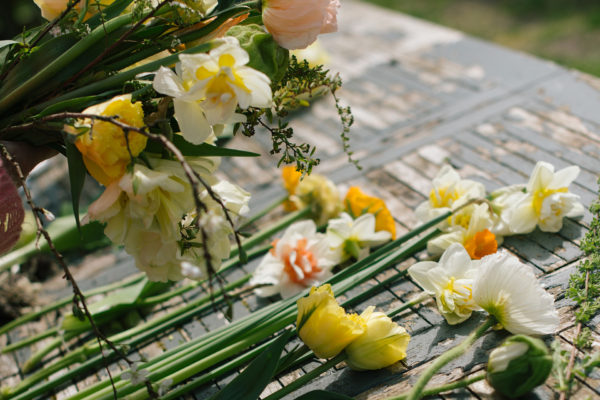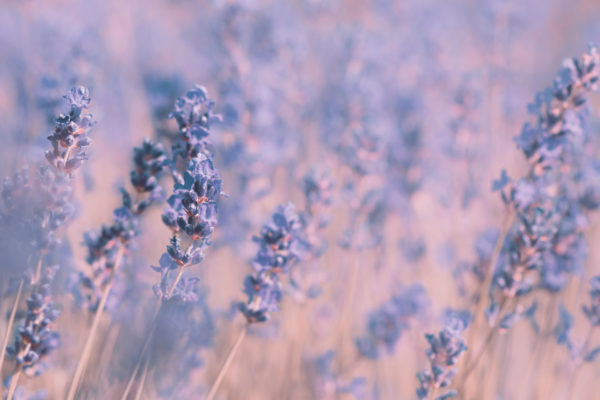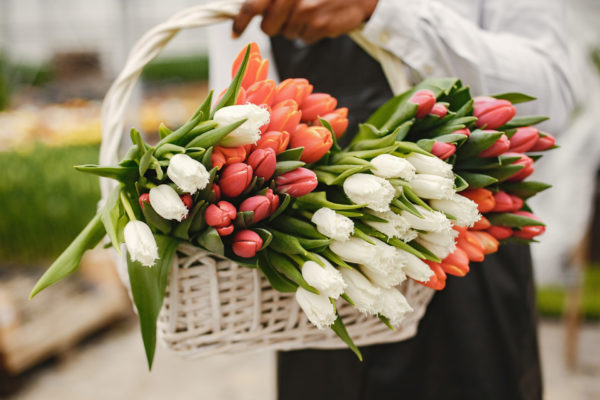Interview With Stephanie Woolvett, Founder of Floristry Company Kokutan
By
2 years ago
From fashion to flower farming, the sustainable way
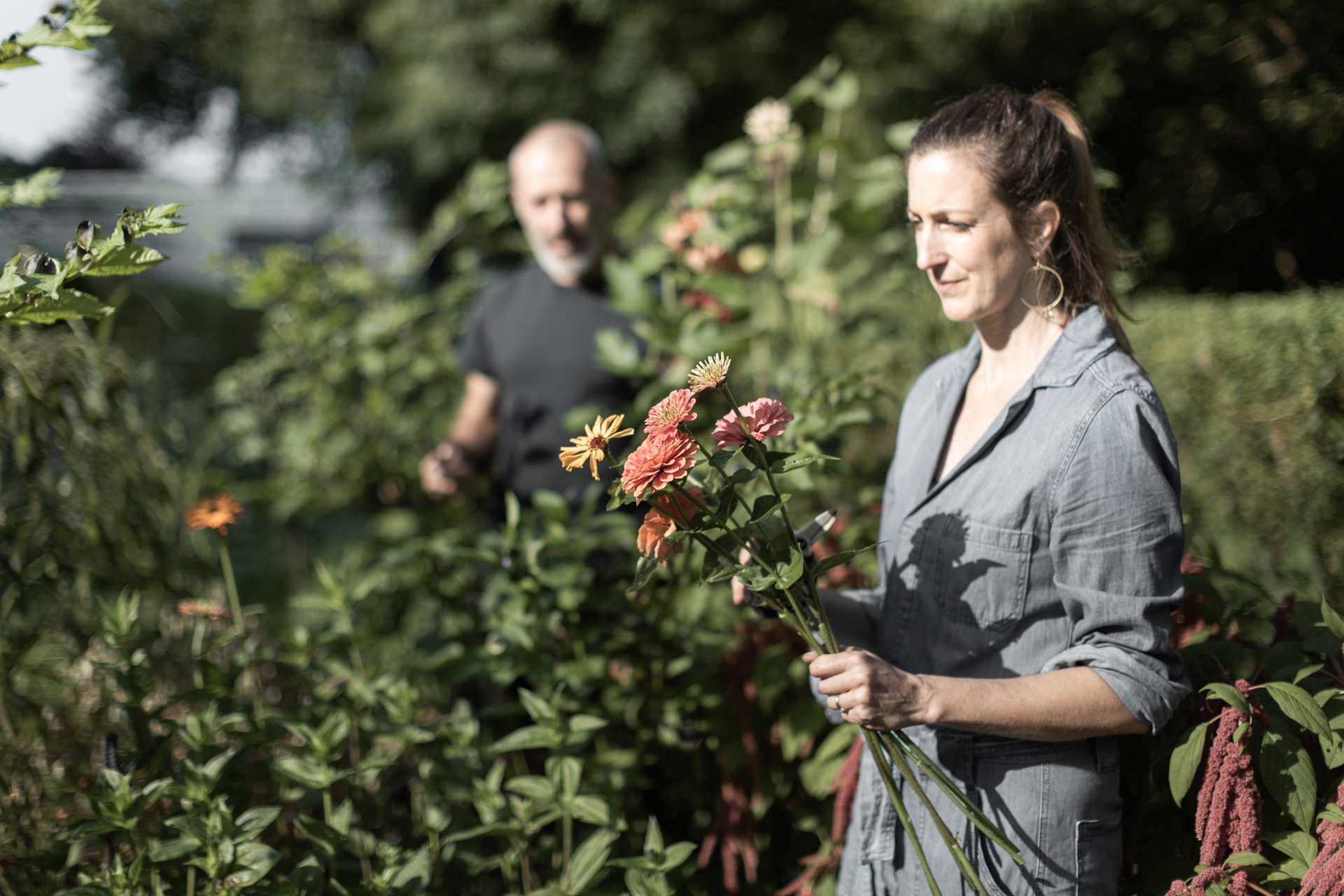
Matt Thomas chats to Stephanie Woolvett, founder of Kokutan, about how she returned home to Devon to launch a micro flower farm with sustainable growing at its heart.
Interview With Stephanie Woolvett, Founder of Floristry Company Kokutan
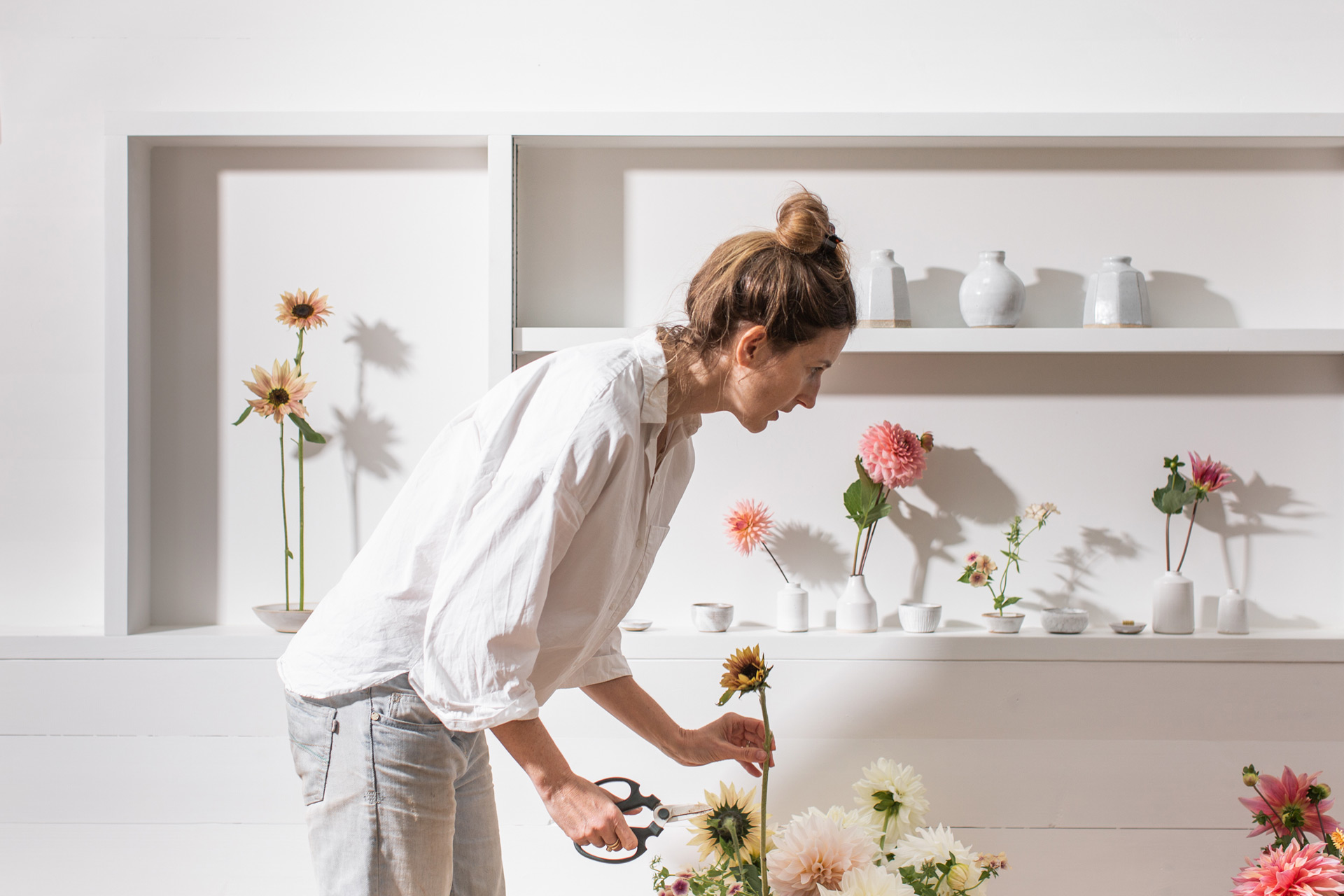
Previously a fashion buyer for Boden, Stephanie Woolvett returned to her native Totnes in Devon in 2009 to change direction. She initially built a café at Staverton Bridge on the banks of the River Dart, later working with her partner Vinny and architect friend Hazel of Corylus Architects Ltd to turn the café structure into her home. The eco house was named Kokutan, Japanese for ‘burnt wood’ from the shou sugi ban technique of preserving wood, which is how the exterior of the house was finished. This also became the name of Stephanie’s organic micro flower farm, design and creative floristry business.
The cut flower industry is enshrouded with environmentally harmful, unsustainable practices built around the use of chemicals and pesticides. Flowers are often imported which in turn requires refrigeration as well as significant packaging. Kokutan grows and sells flowers with a much lighter carbon footprint and which possess a different beauty and quality. They work with the seasons then pick to order natural, healthier blooms, which are more fragrant, longer lasting, delicate and enchanting.
This commitment to sustainable growing practices means constantly exploring ways to improve the ecological balance of the flower farm. Soli health underpins everything and step one was the creation of an ecosystem where the soil and biological communities could build. Synthetic fertilisers and chemical pesticides are avoided which means the flowers are both a food source and home to bees and other beneficial insects. Crop rotation, cover crops, crop diversity, rainwater harvesting and biodegradable packaging all add to the mix. Green waste is composted and fed back into the earth and the unheated glasshouses themselves are second hand, 30 years old and still going strong…
Kokutan now offers garden and landscaping design consultancy, floristry specialising in weddings and funerals and seasonal creative workshops. I caught up with Steph to find out more and also to ask for tips on buying flowers sustainably and creating impactful arrangements.
What made you change from a career in fashion to micro flower farming and floristry?
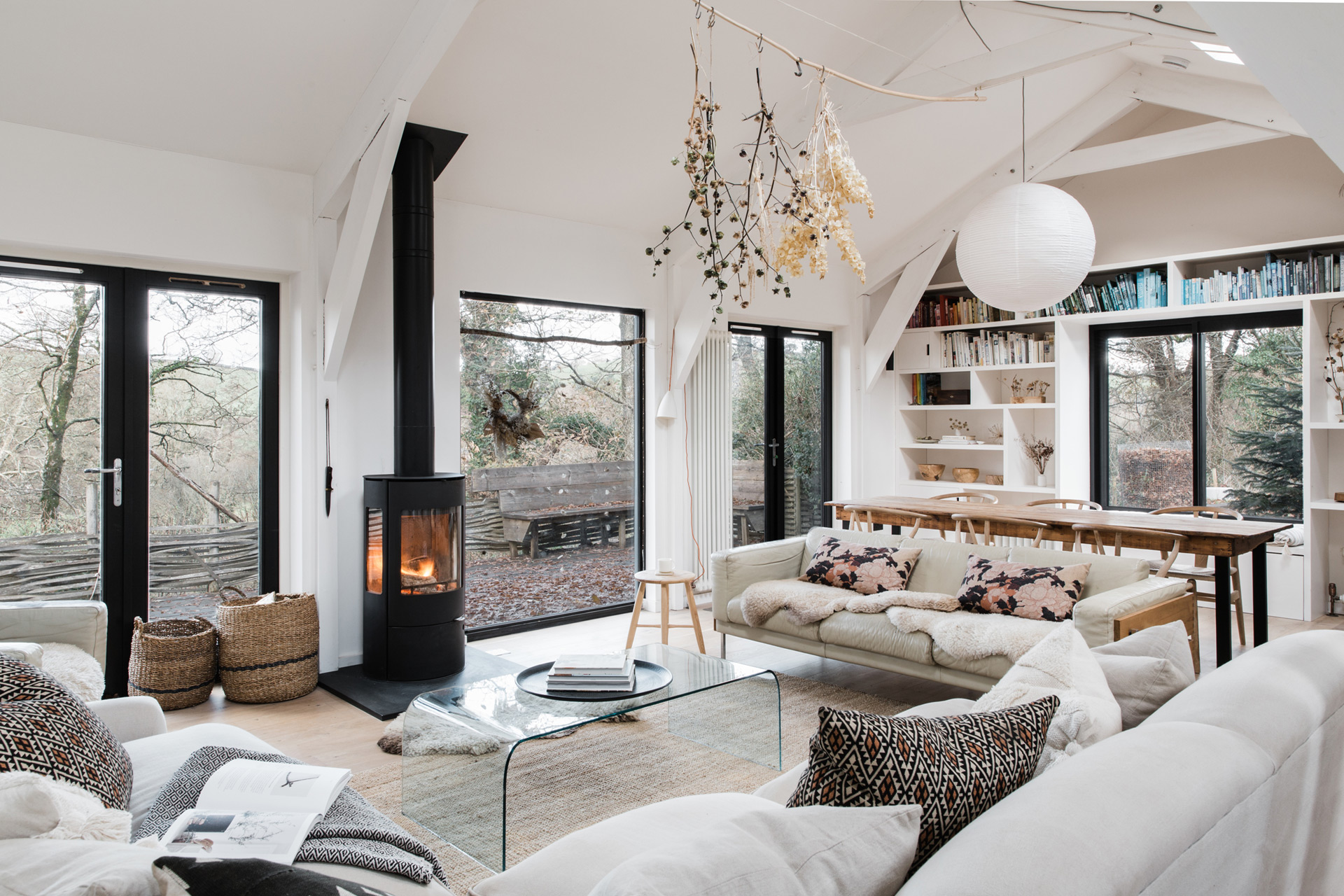
Whilst I loved working in fashion – the seasonality, colours and textures and the production planning especially – in 2009, I felt ready to move out of the city and back home to where I grew up. My journey into flower farming and floristry wasn’t a linear one. I started my life back in Totnes, Devon by buying my Mum’s herb nursery in 2009 and building a café on site.
After burnout in 2017, the business was closed and I took a Garden and Landscape Design Diploma at the Eden Project alongside converting the café into a house. Living on our old business site meant we had quite an unusual garden containing two large commercial glasshouses, which I knew I wanted to use in some way and I was also missing the practical side of growing and getting my hands in the soil. On a bit of a journey to explore what was next and how I could combine it with my design skills, I took a Flower Farming course at a fantastic and well-established flower farm called Green and Gorgeous. That was it! I knew where I was going… It was an opportunity for me to get my hands in the soil, work with the seasons, colours and textures as well as a lot of production planning. All the things I loved working on, combined, but now in nature.
What are some of the most popular flowers that you grow currently and which are your favourites?
One of the exciting parts of this job is that it isn’t static. Our favourite flowers change with the season and every year we are trialling new varieties. In spring, it’s all about spring bulbs and sweetly scented blossoms, then you move into summer and there is so much choice with both annuals and perennial flowers, foliage and grasses. The colours move from softer to brighter hues as the weather heats up, then the dahlias arrive and we finish up with our glasshouse grown chrysanthemums in October and November. This year, we’re totally in love with our zinnias, grown in the glasshouse – they are nearly waist high!
What will people learn at your summer workshops this year?
We share how we grow our flowers here through regenerative practices, with a big emphasis on the planet and on people: soil, biodiversity, seasonality and waste recycling. We will also be teaching our students how to cut and care for their flowers, as well as using sustainable mechanics and most importantly celebrating the love of flowers.
What other workshops do you run over the course of the year?
We run a range of seasonal flower workshops throughout the year, starting off the season in April with a focus on spring bulbs, creating either a spring wreath, bowl or bouquet. Through the summer we run hand-tied bouquet workshops, PYO and how to create your own wedding flowers… In autumn, we start to focus on dried flowers in our workshops, finishing off the year with Christmas wreath and decoration workshops. We also offer bespoke courses for individuals, groups and businesses.
Why did you decide to specialise in weddings and funerals?
We like to celebrate life through the language of flowers and working with a diversity of projects and clients, big or small. Whether it’s the excitement of a new life coming together for a couple through wedding flowers or the celebration of a life and creating a tribute which truly fits that person and our client’s memories of them.
What have been some of your favourite commissions?
We love working with flowers whatever the scale and budget, from the tiniest buttonhole to a full-scale flower arch and everything in between. Working with a seasonal and natural product means no project is ever the same.
What advice would you give to people wanting to buy flowers more sustainably and with a lighter carbon footprint and less use of chemicals?
- Buy locally: If you don’t know where to find your local flower farmer or florist, check out Flowers From The Farm website – it has a directory to help you find local growers.
- Locally grown flowers support biodiversity, providing habitat and food to pollinators such as bees, butterflies, and other beneficial insects.
- A lot of smaller local flower farmers support more sustainable and eco-friendly practices such as no chemical usage (like us), which supports soil health and biodiversity or reduced chemical use. Get to know your local grower and find out how they grow.
- Buying locally supports the local economy and sustainable flower production and floristry.
- Buying locally reduces the carbon footprint of your flowers, which are often grown abroad and require refrigeration and additional packaging to protect them during transportation.
- By buying local flowers, you will have access to flowers which are more delicate and don’t travel well.
- Local flowers have more scent. Scent is often bred out of imported flowers, in favour of genetics to ensure they travel well.
What tips would you give to those wanting to make a stunning summer floral bouquet?
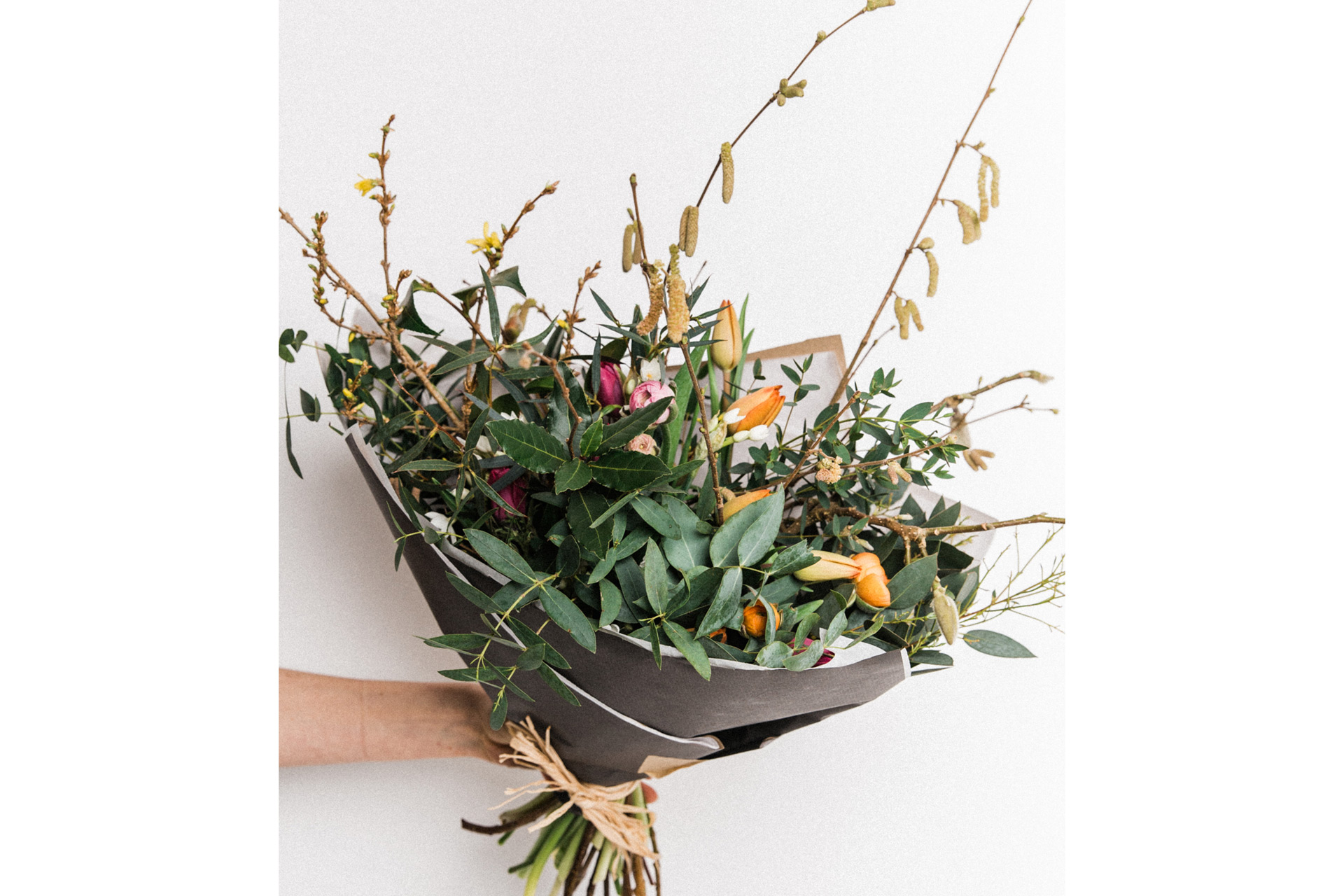
- Learn to cut and condition your flowers correctly so they have the best possible vase life. Cut either early in the morning or late evening. Use clean scissors, a bucket and water.
- Take inspiration from nature – a bent or twisted stem makes an arrangement appear more natural.
- Consider the colour palette and style you would like to achieve – again, nature is the best inspiration.
- Have a good mix of flower shapes, including focal flowers, i.e. roses or dahlias, filler and foliage.
- Ensure you add some scented flowers or foliage.
Your home is full of amazing dried-flower displays. What advice would you give to those wanting to try something similar?
- You can either pick and dry your own flowers or buy from a local flower grower or supplier.
- Expect dried flowers to be a bit more expensive than fresh flowers, as they have to go through the extra process of drying and storing.
- Don’t be afraid to experiment with vessels.
- If you want to learn more about dried flowers check out flower farms and florists for workshops.
Where do you suggest a great stay in or near Totnes, and any good local eating tips?
Totnes is such an amazing area to live or visit. We feel very lucky to live here and to have such a good choice of local and sustainable food choices nearby…
Check out:
The Bull Inn, Totnes (bullinntotnes.co.uk)
Harry’s Smoke House (bensfarmshop.co.uk)
The Green Table at Dartington Hall (dartington.org)
Riverford Field Kitchen (riverford.co.uk/)
Sandridge Barton (sandridgebarton.com)
What is next for Kokutan?
This year, I joined forces with Kerensa, a good friend and florist with 13 years’ experience, which is fantastic for Kokutan as we are now able to expand on our floristry and workshop offers. We’re looking forward to educating others about the floral industry and how you can enjoy the beauty of flowers in ways which avoid damaging the environment.
We are slowly expanding our growing space and implementing more regenerative growing practices. I’ve spent this year completing a diploma in Agroecology and Regenerative Land- Based Systems at the Apricot Centre, a biodynamic regenerative farm, so that we can build a business that is even more resilient to climate change and kinder to the planet.

